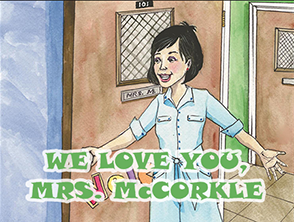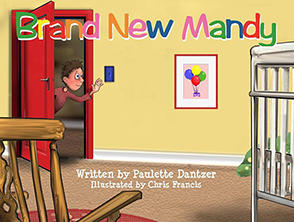“Children should be seen but not heard.” How often have you heard that? There is some truth to it. You certainly have to curb your child’s tendency to ask out loud why the lady in your checkout line has such a big tummy (especially if she’s not pregnant!). Assume that when your young child, even as young as two or three, tries to tell you something, you should at least listen. Having a young mind should not be equated with having no sense.
I learned this first hand.
It was the summer just before my oldest grandson Max turned three. His brother Oliver was due to be born in early fall, so my son and daughter-in-law asked me to come to Kingston to watch Max for a few days while they took a short holiday. I wouldn’t really be on my own for this venture. Mar-Mar, his other grandmother lived just outside Kingston on a farm. She invited us over for dinner one night and I gladly accepted. There Max sat safely tucked into his car seat behind me as we made our way to dinner. About ten minutes into the ride, Max blurted out, “Wrong way Nana!” I had been secretly concerned that the way there was a tad longer than I had anticipated. The rational side of me thought, “He’s only two. I must be right.” Just to be sure, I stopped at
a gas station, told the attendant where I was going. He promptly replied, “You missed a turn back there. If a glorious beam shone down upon my silvery hair, I could not have been more enlightened. Max was too young to give me the “I told you so” speech, and I was in recovery mode, so the remaining ride was very quiet. My enlightened phase wasn’t over.
When we got to Mar-Mar’s farmhouse, we were greeted warmly. However, Max had a “job” to do. The potty was brought out from the back room, set in the middle of the huge kitchen, and my grandson went immediately to it. This was a routine thing they did for the last several weeks, trying to “train the poops”. Max happily sat there for a few moments then exclaimed, “I have a story!” Apparently, this was often the case when he sat on “the throne.” We looked at each other smiling, and listened to his tale. He began the story of the Three Little Pigs, raising his arms and punctuating almost every new sentence with a slap on his little thighs….for emphasis. Max began…
“Once upon a time, there were three little pigs. (slaps on thighs) And they built some houses. (s.o.t).And a wolf puffed and puffed and tried to blow them down!(s.o.t) And Nana got lost. (s.o.t.) And I was right! (s.o.t) And they lived happily ever after! (s.o.t.)
So much for keeping my secret safe. I explained why the fairytale took a turn. We had a lovely evening at the farm, and drove back into town later (the right way!). But several times during our visit, I would look over at Max and quietly think, This little guy is one smart cookie. Max taught me a valuable lesson.
And that’s the truth.
- Listen to your child. Initial demands are pretty basic: WAAAH! I’m hungry, I’m wet, I have gas, I need a hug. As your child develops language, listen even more intently. Your child may be small, but he or she wouldn’t be bothering you unless they were bothered. It’s worth checking out.
- Encourage your child to share feelings: You knew your baby’s cries for food, a new diaper or a hug. As the years go by, let it be known that you are there to listen and help if the situation gets more complex.
- Trust your child’s voice. Let the child choose a meal (within reason), choose what to wear (when it’s not THAT important), choose a cartoon to watch, choose whatever is comfortable for you to give up being the chooser. This gives the child a sense of confidence that you trust him or her to decide on something or to have an opinion.
All three, of course were learned through trial and error.



